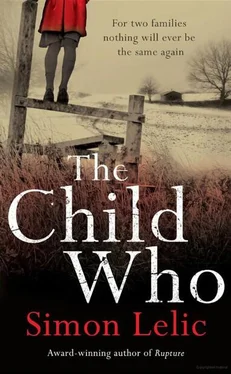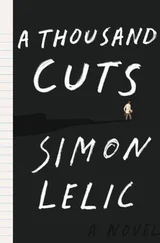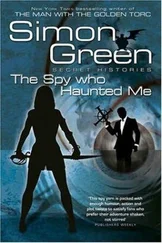Two sentences. That was all. Barely that, grammatically speaking, but enough to make their point. Enough, in the gloom, to make clear their intent.
‘Leo!’ Megan grabbed at his arm and forced him to turn. ‘Answer me!’
But Leo, facing his wife, did not know what to say.
She trails,though she knows she is expected to lead. It is not, she imagines, what the boy is used to: this salesman, essentially, who every day must put up with being sold to. Look here, young man, at the flooring. And here, in the bathroom – we put that in ourselves. Megan, in comparison, must seem almost hostile. Uncaring, at least, though she does not mean to be. It is uncertainty. Bewilderment, rather. She is in a barrel, it feels like, on a hill – aware that she has set things in motion but too dazed to wonder where they might stop.
‘Cracking kitchen,’ the boy says. His head bobs as he surveys it. ‘Large,’ he says and he makes a note.
Megan moves from her position in the doorway. Her toast is rubble on the worktop and some instinct, at the sight of it, reasserts itself. ‘Sorry,’ she says. She stacks the honeyed knife on the plate and slides the plate to the side of the sink, the half-full ashtray too. With her hands she makes an attempt at sweeping up the mess.
‘The units.’ The boy points with his pen. ‘Are they new?’
‘Um.’ Megan considers them. They are not. They came with the house. But the boy, before she can answer properly, has moved on.
‘What’s through here?’ he says, disappearing into the utility room. ‘Cracking!’ comes a voice and the boy emerges with his pen working in unison with his head. ‘Great space,’ he says. Then, earnestly: ‘Useful.’ He looks to Megan for agreement and she makes a noise like she should probably have spent more time thinking about it. She gestures for the boy to lead into the hallway.
‘So what’s the story?’ the boy asks as he bounds up the stairs. His head is turned to the ceiling and his mouth, between words, swings unhinged. He is like a tourist beneath the dome of St Paul’s.
‘The story?’
The boy has stopped to make another note and Megan, reaching the landing, is grateful for the chance to draw breath.
‘The house. Have you got something else lined up? How soon would you be ready to push the button?’
It seems an apt turn of phrase. Megan thinks of the films Leo always used to like to watch, of buttons controlling bombs.
‘Soon.’ She realises, as she says it, that she means it. ‘Immediately, actually.’
The boy turns. ‘Oh,’ he says. He smiles. ‘Cracking.’
‘Would that be a problem?’
‘No. Not at all. It’s just… when we spoke on the phone…’
‘I know. But, well. Circumstances have changed.’
The boy, finally, exhibits an expression that does not employ his teeth. In half a morning? he is thinking.
She did not follow the boy into her daughter’s room but she returns there once he has left. She perches at the foot-end of the single bed, a notepad on her knees and Leo’s antique Casio beside her. She taps, reckons, taps. The calculator is straining in the dim light, displaying figures as faded as the pattern on the bed sheets. She has deducted all she needs to, though, and the important thing is that there are numbers still showing. Enough to pay off what she owes. Enough for rent. Enough, if things work out, for something permanent. And this, if the estate agent is to be believed, is worst case. Best case is… She taps the keys again. She shakes her head. Why on earth, she wonders, has she been deaf for so long to her own advice?
The answer comes unbidden: circumstances have changed. Isn’t that how she put it? I have awoken, she might have said. Or, I was caught in a barrel on a hill and it has shattered, finally, and thrown me into glorious freefall. She laughs. She thinks she is laughing but it turns out she is crying. Worst case, best case. The money has nothing to do with it. Or perhaps it did, when she did not think she had enough. The point is, it does not any more. The money, now, is the least of things.
She drags a hand across each eye and she stands. She straightens herself, as though there were someone there to straighten herself for. She glances around her daughter’s bedroom and she gathers her things as though to leave.
She lingers.
A shrine, her mother called it. She did not mean it in a good way. You can’t mourn forever, darling, she said. You should clear things away. I could help. It would be less painful. Wouldn’t it? To take down the curtains and box up the CDs and cover the wallpaper with just plain white. But Megan would not let her, so a shrine it remained: one Megan worshipped at, in the earliest days, but only ever visits now to clean. Or so she tells herself.
She sets down her notepad and the calculator on the bed. She lets her hand graze the bed sheets. She would grip them, hold them, clutch them tight to her face and inhale – but she has done it before and it has never helped.
Her eyes sweep the bookshelves and the CD spines, ordered to a code she has long since cracked. The music, by mood: melancholy, for the most part, through angry and then outraged and thinning, at the furthest end, towards joy. The books, by worth. Not simply most preferred, a teenager’s top forty, but by her daughter’s estimation of their content. On the top shelf, in prime position, To Kill a Mockingbird , the creases on the spine repaired to black with a Magic Marker. Beside it, T.H. White, L.M. Montgomery and L’Etranger by Albert Camus. A school copy, it looks like, read and re-read and requisitioned. There is more Montgomery on the bottom shelf, alongside C.S. Lewis and Enid Blyton and a re-issued hardback of The Catcher in the Rye , which for some reason her daughter took against . Also, beside it, Lord of the Flies , which to Megan has also never seemed quite right. Her daughter, though, was categorical: only a Beverly Hills, 90210 annual has been afforded a less esteemed spot.
From the pen holder on the desk, Megan plucks a pencil. She studies the gnawed end for a moment, then sets it within the cradle of her tongue. She sits, on the floor, and she sucks.
It is where she would often find Ellie: on the carpet, in the space between her desk and the foot of her bed, a pillow against the wall behind her and a book, often, propped on her knees. Other times she would simply be sitting, as Megan is, to a soundtrack perhaps and with her eyes lidded or to the ceiling. What are you thinking about? Megan might sometimes dare to ask from the doorway. Her daughter would rarely answer. Or, if she did, her response would in no way be formulated to reassure a worried mother. Nothing. Just things. Shut the door, Mum – please.
A piece of pencil comes away in Megan’s mouth and she dabs to catch the scrap of sodden wood. It sticks to her fingertip and evades her flick so she uses the handle of one of the drawers beside her to dislodge it. Her grip, once she has, returns to the handle. She hesitates, then pulls, and the drawer expels its contents.
The drawer, the topmost of three, is full of clippings. It was Leo’s idea to save them. He was in the habit, Megan would have said, but he claimed too that they might help. They might, he insisted, yield some clue. That he was wrong gives her no satisfaction. She would have sacrificed any part of her – her pride, a limb, her very life – if it would have meant that Leo was proved right.
She did not read the clippings then and she has no desire to read them now. She makes to shut the drawer but pauses with it halfway closed. Well? she thinks. Why not? She opens the drawer more fully once again and begins taking out the clippings by the handful. She makes a pile. For recycling, is her citizenly instinct, but there are better options, surely. Shredding, say. Or burning.
Читать дальше












